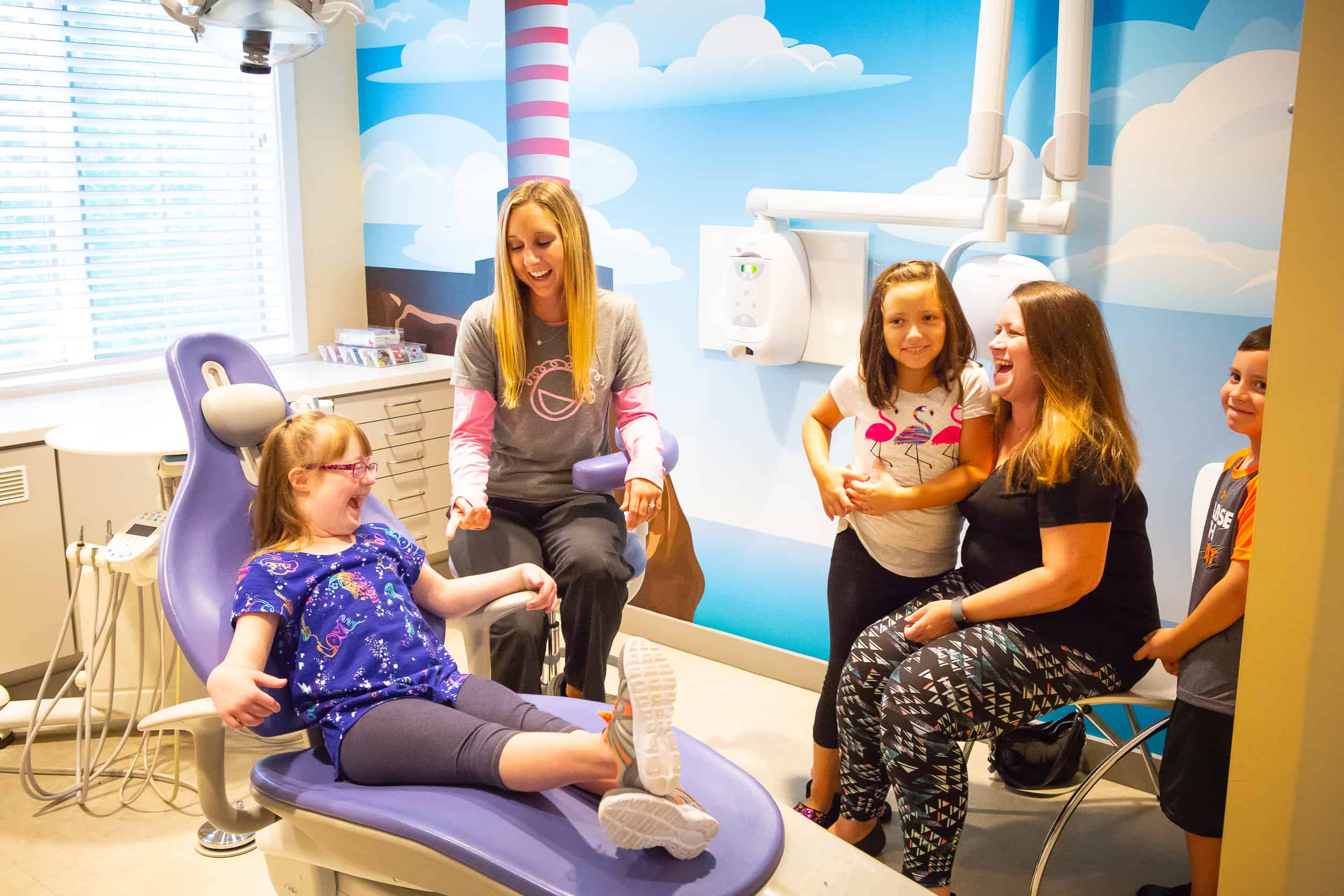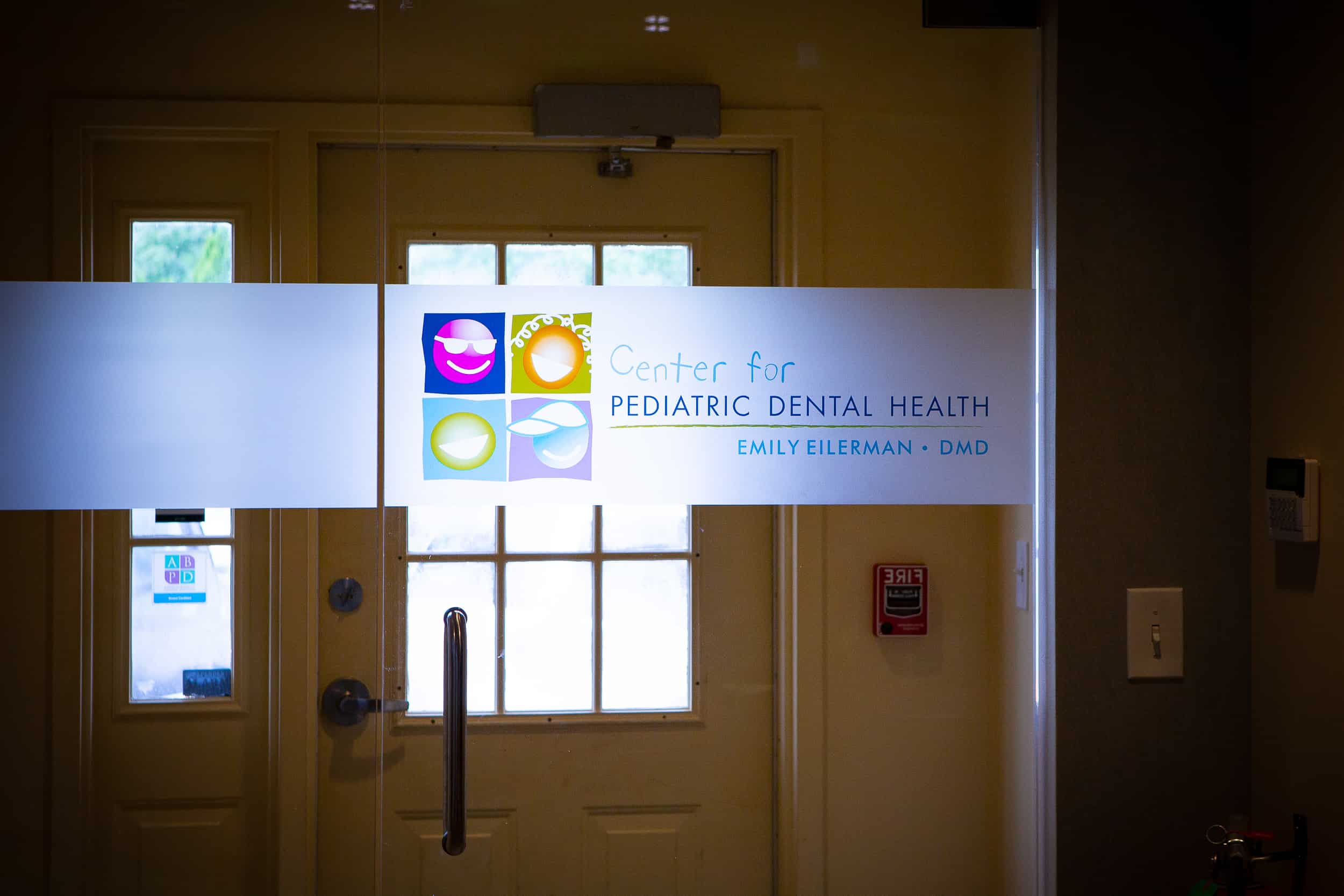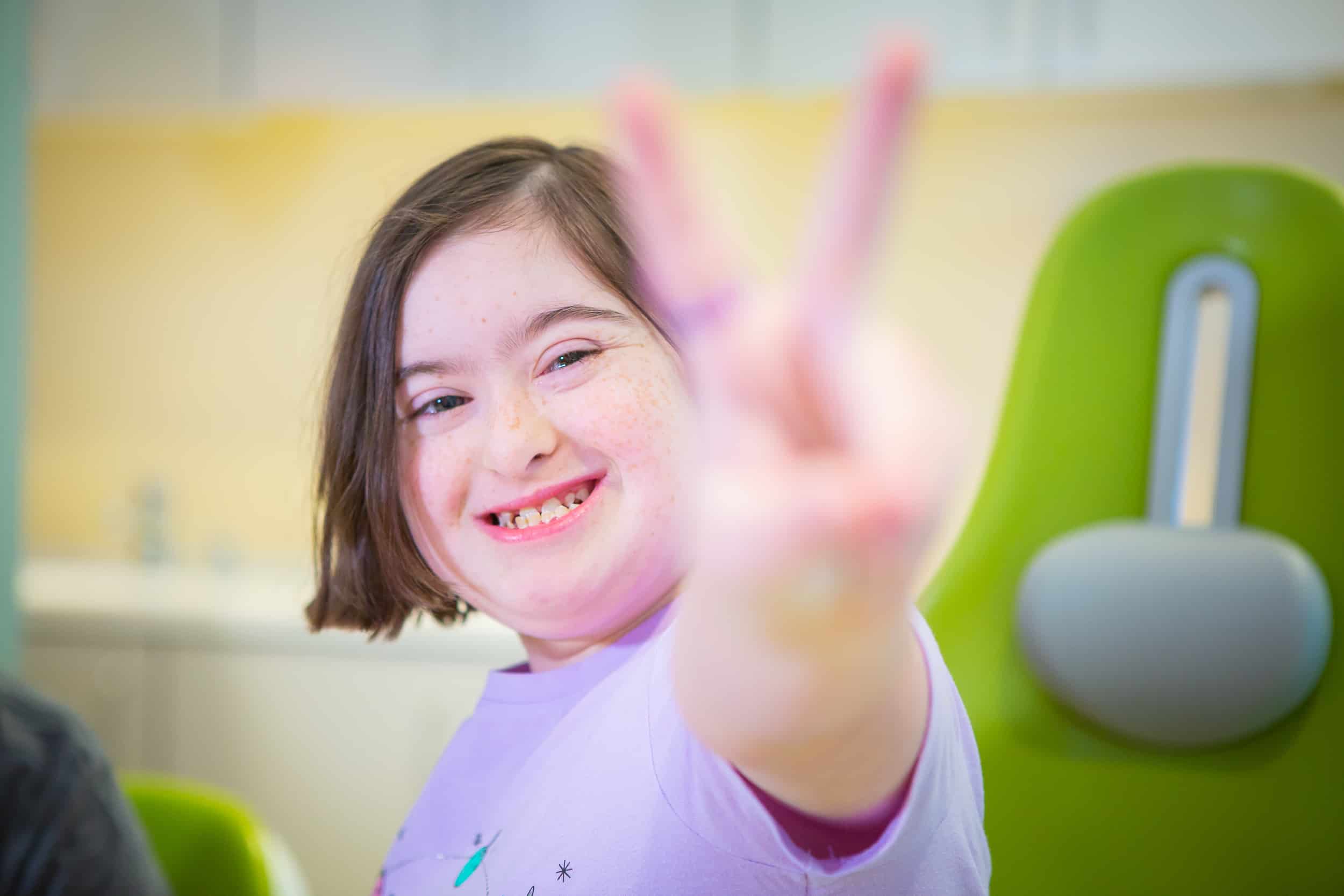Have you noticed your child gnashing their teeth? Sure, they might be frustrated, but it could be a sign of something else. Do they move their lower jaw back and forth in their sleep? Kids’ jaw clenching and teeth gnashing could be signs of bruxism in children.
What is bruxism, and is it a serious problem? Many children have it briefly but grow out of it. Those who don’t can do serious damage to their developing teeth and jaws.
The Center for Pediatric Dental Health treats children with bruxism. We have some suggestions for parents who want to help their children stop this damaging habit.
What Is Bruxism?
Bruxism is a fancy way of saying teeth grinding. It often happens at night when the child sleeps, but it can occur during the day as well. Often, daytime teeth grinding in kids is more of an unconscious motion, though some can do it deliberately.
Bruxism occurs for several reasons, and they usually differ between children and adults. Why do children grind their teeth?
- Mouth sores: They may grind their teeth in response to pain or to keep their teeth closed and avoid biting areas around the sore.
- Misaligned teeth: The child may have teeth that don’t fit together correctly, and they grind their teeth trying to move them into a more comfortable resting position.
- Allergies: Children may grind teeth in response to breathing problems due to allergies
- Headaches or earaches: Children may grind teeth in response to pain, such as headaches, earaches, or neck pain.
- Stress: A child in a stressful situation or environment may grind their teeth.
- Hyperactivity: Hyperactive Children may grind their teeth.
For adults, bruxism may be caused by problems such as acid reflux, over-consumption of alcohol or caffeine, smoking, or certain medications such as anti-anxiety medications.
Child Bruxism Symptoms
Pediatric bruxism signs are similar to adult signs. The symptoms of bruxism in kids include:
- Tooth pain
- Jaw pain
- Jaw fatigue
- Headaches
- Neck aches
- Cracked teeth
- Chipped teeth
- Broken teeth
A child who keeps grinding their teeth can eventually develop excessive tooth wear or temporomandibular joint disorder (TMJ or TMD). Because a child’s jaw is still growing, it may take time for the symptoms to show up. But if that same bruxism causes the jaw to develop incorrectly, it may be harder to fix later.
You may also notice behavioral symptoms, such as frequent waking in the night, excessive chewing of other objects, chewing of nails, or an aversion to eating because of jaw pain.
When Do I See a Pediatric Dentist for Bruxism?
Many small children outgrow their bruxism, usually by age 6. That’s about the time they lose their baby teeth and start getting permanent teeth. Some causes, such as frequent earaches, allergies, or stressful situations, may change or improve as children age, reducing their need to grind their teeth in response.
If your child continues to have symptoms, or if you begin to notice tooth damage, it may be time to bring your child in to their pediatric dentist.
The doctors at The Center for Pediatric Dental Health have several options and recommendations to help stop their teeth grinding. We can recommend different methods to use at home, or we can fit your child with a mouthguard to prevent bruxism.
How to Stop Bruxism in Kids at Home
How do you stop child’s teeth grinding at home? There are several possible methods to reduce or eliminate your child’s bruxism.
- Reduce screen time before bed. Taper off your child’s screen time before bedtime. This is a great time to read a story to help your child relax.
- Create a relaxing routine before bed. Bedtime stories can be more than reading a book. Tell your child a story about yourself or a grandparent growing up. Create a story of your own. Or even sing or play a song before bed to help your child relax.
- Talk about stressful situations. Encourage your child to talk to you when they seem stressed. Talking through their stress can help them release it.
- Avoid sugar before bed. Sugary snacks or foods before bedtime can cause hyperactivity that can lead to teeth grinding.
- Teach your child breathing exercises. Slow, deep breathing can reduce stress and calm them before bed, which can reduce kids’ teeth grinding at night.
FAQs About Bruxism in Children
Can teeth grinding damage baby teeth?
Is bruxism linked to anxiety in children?
At what age does bruxism usually stop?
Should my child get a nightguard for teeth grinding?
Is it dangerous if my toddler grinds their teeth?
Can bruxism cause jaw problems in kids later on?
Pediatric Bruxism Care in Sicklerville, NJ
Bruxism is common in small children and usually isn’t a significant concern because it resolves itself over time. However, if your child continues to grind their teeth, or if you notice damage from teeth grinding, then it may be time to consult a pediatric dentist.
The Center for Pediatric Dental Health can help children with bruxism in Sicklerville, NJ, Mount Laurel, NJ, and Woolwich Township, NJ. Schedule an appointment if you notice tooth wear, cracks, chips, or breaks, or if your child complains repeatedly of headaches, jaw pain, or problems eating. We’ll help you both reduce your child’s bruxism and save their smile!










